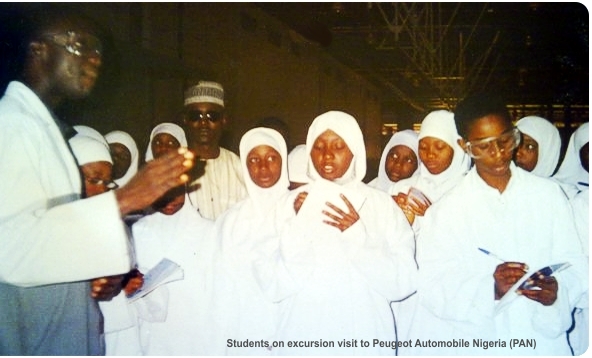
Tuition
- A curriculum featuring a robust set of subjects taught at the College
- Co-curricular activities complementing students’ education and providing a refreshing variety to just mere academic work
- Special, selected subjects taught to students to help expand their minds
- Assessment and evaluation of students’ academic performance
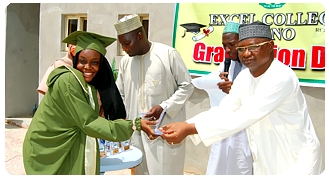
Graduate receiving plaque
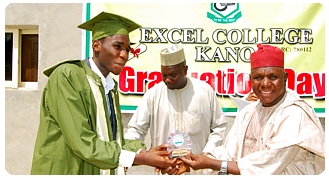
Another graduate receiving plaque
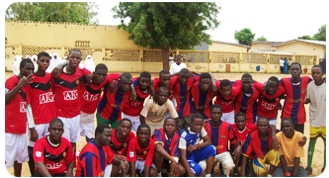
College football team
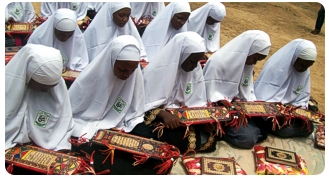
Qur’an students graduaution
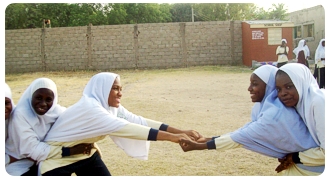
Students enjoying their games
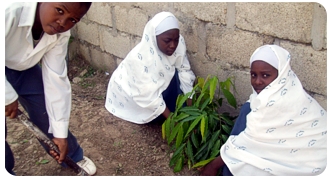
Young Farmers club members
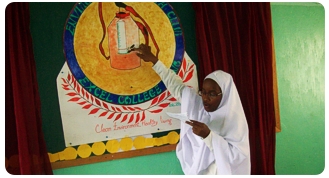
Health and Environment club logo unveiling
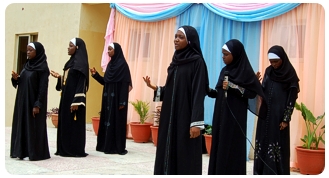
Stage performance by students
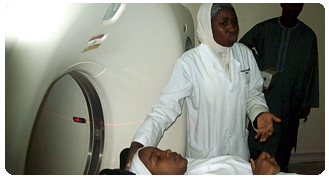
Excursion to a medical centre (CAT Scan demonstration)
Curriculum
Excel College Kano is a registered post primary institution and confirms with the national curriculum.
It complies with the Nigerian Educational Research and Development Council (NERDC) curriculum with which WAEC/NECO and JAMB selection examinations syllabi are integrated. However, it also offers various Islam-based programmes to enhance students’ academic activities for spiritual and moral development.
The College offers a wide range of subjects for academic as well as Islamic, moral and character development.
The JSCE External examination result and the students’ interest determine the next and final stage of their secondary school education. This stage will lead students into either Arts, Science or Commercial Class.
| Junior Secondary School (JSS) level subjects: 1. English Studies 2. Mathematics 3. Social Studies 4. Basic Science 5. Physical Health Education 6. Agricultural Science 7. Hausa 8. Islamic Studies 9. Arabic 10. French 11. Basic Technology 12. Home Economics 13. Fine Art 14. Islamic Persective 15. World History 16. Computer Studies |
Senior Secondary School (SSS) level subjects: 1. English Language 2. Mathematics 3. Biology 4. Chemistry 5. Physics 6. Further Mathematics 7. Technical Drawing 8. Geography 9. History 10. Literature-in-English 11. Economics 12. Commerce 13. Government 14. Book-keeping and Accounts 15. Hausa 16. French 17. Arabic 18. Islamic Studies 19. Agricultural Science 20. Computer Science 21. Islamic Perspective 22. World History 23. Entrepreneur Studies |
Co-curricular Activities
Besides academic work, there are other activities carefully designed to complement the type of education students of Excel College, receive before they graduate. These include the monthly interactive Association of Nigeria Authors (ANA) creative writers forum at the British Council, charity work, excursions, field trip, games, quiz, debates, weekend entertainment, and activities within clubs and societies. Some of the clubs include:
- Press club
- Literary and Debating club
- Tajweed club
- JETS club
- Homemakers club
- Young Farmers club
- French club
Special Subjects
- Islamic Perspectives: A subject for all students with the aim of enabling the students to appreciate the environment, science and life in general using Islamic lenses
- Tajweed: Islamiyyah based subject designed for boarding students only
- World History
- Islamic Economic and Finance
Assessment
Continuous Assessment comprising of classwork, assignments, projects, tests and others, forms 30% of total marks for both JSS level and SS level in grading students’ academic performance each term, while the end-of-term examination makes up the remaining percentage. The pass mark at the Junior level is 50% and at the senior level, it is 40%.
JSS3 and SS3 sit for mock examination before they sit for external body examination.
Analysis of Our Students’ Performance in the West African Examinations Council (WAEC) Examinations: 2002 to 2012
| YEAR | NO. OF STUDENTS | NO OF STUDENTS WHO SCORED FIVE CREDITS AND ABOVE |
PERCENTAGE PERFORMANCE |
| 2002 | 20 | 20 | 100% |
| 2003 | 14 | 14 | 100% |
| 2004 | 11 | 9 | 84% |
| 2005 | 16 | 16 | 100% |
| 2006 | 18 | 18 | 100% |
| 2007 | 24 | 23 | 96% |
| 2008 | 23 | 23 | 100% |
| 2009 | 23 | 23 | 100% |
| 2010 | 28 | 22 | 76% |
| 2011 | 30 | 30 | 100% |
| 2012 | 12 | 9 | 75% |
| 2013 | 12 | 11 | 92% |
| 12 YEARS | 231 | 218 | 94% |

